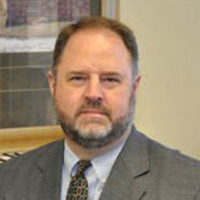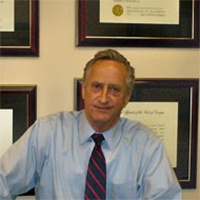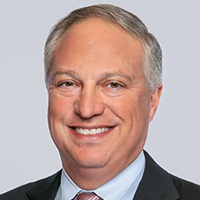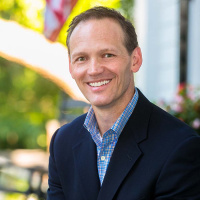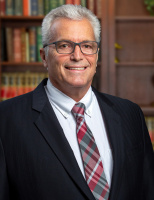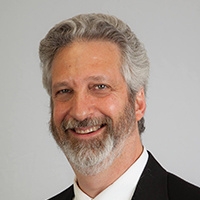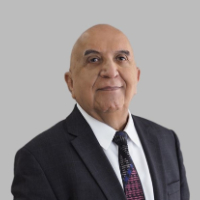 Roswell Estate Lawyers, Georgia
Roswell Estate Lawyers, Georgia
Sponsored Law Firm
-
 x
x

Click For More Info:
-
Sell & Melton LLP
577 Mulberry Street Suite 810 Macon, GA 31201» view mapEstate Law Accomplished. Experienced. Dedicated.
At Sell & Melton LLP, our team is ready to help you with legal matters of estate planning. We have the experience needed to help you reach a satisfactory outcome.
800-770-3841
Sponsored Lawyers
1-10 of 45 matches
Divorce & Family Law, Estate, Power of Attorney, DUI-DWI, Traffic
Chimere Chisolm Trimble is an award-winning attorney and passionate leader in the Georgia legal community, known for her work throughout South Georgia and the Atlanta Metropolitan area. As founder of Chisolm Trimble & Associates, she has been providing legal representation to clients from her offices in Atlanta (Midtown), Douglasville, and Albany. Focusing in the areas of family law, including divorce, custody, spousal / child support, legitimation and estate planning. “I am focused on protecting the legal rights of each one of my clients," says Attorney Trimble “Every Georgian deserves a committed understanding attorney who is well versed in the laws of our state and who is willing to fight for them.” Attorney Trimble’s varied and accomplished legal career includes work with the North Carolina Justice center, previous Staff Attorney to three Superior Court Judges, former Assistant City Attorney, selection to the Georgia Super Lawyers five years straight, served as Regional Vice President for the Georgia Association of Black Women Attorneys, as well as a Municipal Court Judge, Executive Board Members to several non-profit organizations and most recently Chairperson to the Family Law Section of GABWA.
(more)Bankruptcy & Debt, Business, Accident & Injury, Estate
Brian Near began his legal practice in 1989 with a law firm located in the former IBM Tower (One Atlantic Center) in midtown Atlanta. He later moved his practice to Resurgens Plaza in Buckhead and eventually settled in Peachtree Corners, Georgia. Mr. Near is an active lawyer handling cases involving litigation, bankruptcy/debt relief, estate planning, domestic disputes, personal injury, wrongful death, medical malpractice, and premises liability. "My goal is to provide guidance and support so that together, we can work toward a solution to help you move forward." Since entering solo private practice in 1994, Brian Near has acquired, operated, and sold two restaurant businesses, bought and sold various real estate investments, and had other practical experiences that are beneficial to his legal business clients. Mr. Near is married with two children, lives in Cumming, Georgia, and enjoys spending time with his family and traveling.
(more)Accident & Injury, Estate, Criminal, Real Estate, Traffic
Attorney Nestor has been licensed to practice in the state of Georgia since 1995. He helps clients in Accident & Injury, Estate, Lawsuit & Dispute, Traffic and Real Estate matters.
(more)Estate, Lawsuit & Dispute, Real Estate, Business
Mr. Wayne has been practicing as an attorney in Atlanta since 1996. Mr. Wayne began practicing law as a contract attorney for top criminal defense attorneys in Atlanta, working on Federal Criminal Appeals. He then moved on to become a real estate closing attorney. While enjoying his work as a closing attorney, he missed the world of litigation. In 2001, he began his own civil litigation practice and in 2005, Mr. Wayne established Richard C. Wayne & Associates, P.C.
(more)Real Estate, Criminal, Estate, Employment, Business
“We take pride in the fact that Weener Nathan Phillips is not your ordinary service provider. Our clients know that we’re in this together – whether in the trenches side-by-side, preparing to take on a challenge or in a conference room, celebrating the exciting growth of their business as one through a hard-won merger, franchise structuring or real estate investment. We’re more than just legal counsel, we’re a partner – a vital extension of their team.” ~ Eric Nathan, Partner Driven by a desire to learn new things, tackle challenges, solve problems and foster long-term relationships, Eric J. Nathan has proven a natural fit as a partner to a fellow attorney, Phil Weener. Since joining the firm in 1994, many of his earliest clients continue to work with him today. A self-described people person, Eric most enjoys the practice of “happy law” – where everyone is smiling and excited about the possibilities the future may hold for their business. His areas of expertise include commercial real estate, mergers & acquisition, mediation, litigation, and the imparting of general business advice. Weener Nathan Phillips clients describe him as competent, collegial, always smiling, and comforting when needed.
(more)Estate, Business, Elder Law, Corporate, Real Estate
Mr. Faulkner is an experienced counselor with 19 years of experience, having held bar licenses in four states (Mo, Il, Ct and Ga). He has litigated in state and federal courts with much success. He has also appeared in the Court of Appeal in both Missouri and Illinois. Through is efforts, he has achieved significant results for his clients, including a settlement worth $39 million dollars for the residents of Hartford, Illinois. Mr. Faulkner uses this experience and focuses his skills in the pursuit of assisting individuals in probate (trust and estate) matters, guardianships and conservatorships, estate planning, business disputes and contract disputes. He is tireless in serving the needs of his clients. As a Georgia attorney, Stan manages an active case load and focuses on helping clients achieve their goals through estate planning, business counseling and probate advice. Stan is originally from St. Louis, Missouri and has practiced law in Missouri, Illinois, Connecticut and Georgia. He started his practice in St. Louis and southern Illinois where he helped clients resolve difficult problems in probate, personal injury, business and contractual disputes and environmental law. Outside of the office, you can find Stan spending time with his lovely wife, twin daughters and young son, involved in various activities from cheerleading to baseball. In his free time, Stan stays active in the Crossfit community competing in local and regional events. Stan is also an avid St. Louis Cardinals baseball fan and enjoys watching and attending college football games in the fall.
(more)Complex Litigation, Business & Trade, Personal Injury, Wills & Probate, Estate Planning
Debranski & Associates, LLC is a general practice law firm. We are Family Attorneys serving North Metro Atlanta in the areas of Business law, Family law, Real Estate and Property Law, and Wills, Trusts, and Estate Planning. Call on us for the answers to your legal questions. Debranski & Associates, LLC are your Georgia Family Attorneys practicing in North Atlanta, GA, USA. We Practice in all areas of the law that affect your family including the Areas of Divorce and Family Law as well as the areas of Business, Real Estate and Property, Wills, Trusts, Probate, and Personal Injury Cases. Ron Debranski has been a succesful litigation and transaction attorney for 14 years. Picture When you or your family faces a legal issue, you want to know that the lawyer and law firm you choose not only understands the legal questions you have related to your lawsuit, whether it involves a divorce, contempt action, custody or visitation modification, or other area of family law, or a business or property dispute, but also understands how other legal and personal issues play into your case. Ron Debranski and his associates are not only familiar with divorce and family law, but also have a great deal of experience with business litigation, and other civil litigation, as well as issues related to business, business valuation, real estate, asset protection, or estate planning, and bankruptcy, and how all these issues interact in your unique legal situration. Ron will listen to you and work toward achieving your legal goals in the most direct and inexpensive way possible. Because of our varied experience, our attorneys in Woodstock and legal associates have the knowledge and expertise to guide you through any phase of the the legal system. Ron Debranski has over fourteen years of legal experience in family law and litigation, business law and litigation, real estate law, personal injury and medical malpractice, wills, trusts, estate planning, and entertainment law as well as thirty years of business experience. Our Woodstock GA based attorneys have handled every type of lawsuit including divorce and domestic issues comprised of uncontested divorces to fully contested divorces involving complicated issues of custody, visitation, child support, alimony and domestic and international property division, either in front of a judge or in a jury trial. We also handle contempt issues, modifications, and adoptions. In addition, our attorneys have extensive experience in the areas of civil litigation in the areas of personal injury, residential and commercial real estate, probate and estate issues, business, commercial collections, and construction. We also handle transactions related to residential and commercial real estate, contractual and business issues, incorporation and llc formation, and drafting of wills, trusts, and estate documents.
(more)Real Estate, Power of Attorney, Estate, Divorce & Family Law
There are few events in life more stressful than a divorce or more devastating than the passing of a loved one. For 30 years, I have been assisting families and individuals in resolving sensitive divorce issues and guiding them through the complex web of laws related to wills and probate. After practicing with law firms in New Hampshire and Georgia, I founded my own firm in 2012 to give you the personal attention that such sensitive legal matters demand. As an active member of the communities of Cherokee and Cobb counties, I’ve come to know a wide range of people on a personal basis, just as I have done for the past 30 years. Hearing their stories is a constant reminder of how vitally important sound legal advice can be in times of need. I am one of the few attorneys in the area who concentrates on both divorce and wills and probate. When you need a sympathetic ear and experienced legal advice, I am only a phone call away and ready to help you through a troubling time. And while I take your legal case very seriously, I try not to take myself too seriously — laughter is, after all, the best medicine, and I find that a good sense of humor goes a long way in helping you to relax — especially during stressful situations.
(more)International, Oil & Gas, Estate, Business
Dr. Kasraie is a founding member of Kasraie & Fodor, LLC. He has well over 30 years of legal and executive business experience in several industries, including banking, finance, energy, real estate, manufacturing, recycling, IT, and pharmaceuticals. He has resolved legal, financial, corporate, and political issues in the UAE, U.K., France, Germany, Switzerland, Finland, Netherlands, Italy, Russia, Romania, Turkey, Poland, Republic of Georgia, Egypt, Morocco, Kuwait, India, Pakistan, Peoples' Republic of China, Taiwan, Canada, etc. He holds several degrees, including J.D. and Ph.D. in engineering. In the late nineties, Dr. Kasraie co-founded the law firm of Marchman & Kasraie, LLC. The firm was active in corporate and security law, international law, and family law. He was a managing member of the law firm. In 2012, he co-founded the law firm of Kasraie & Fodor, LLC with similar activities. In addition, Dr. Kasraie has been the Financial and Economic Advisor to City Governments in the People's Republic of China (PRC) since 1998.
(more)


 R. Chix Miller Macon, GA
R. Chix Miller Macon, GA Practice AreasExpertise
Practice AreasExpertise


